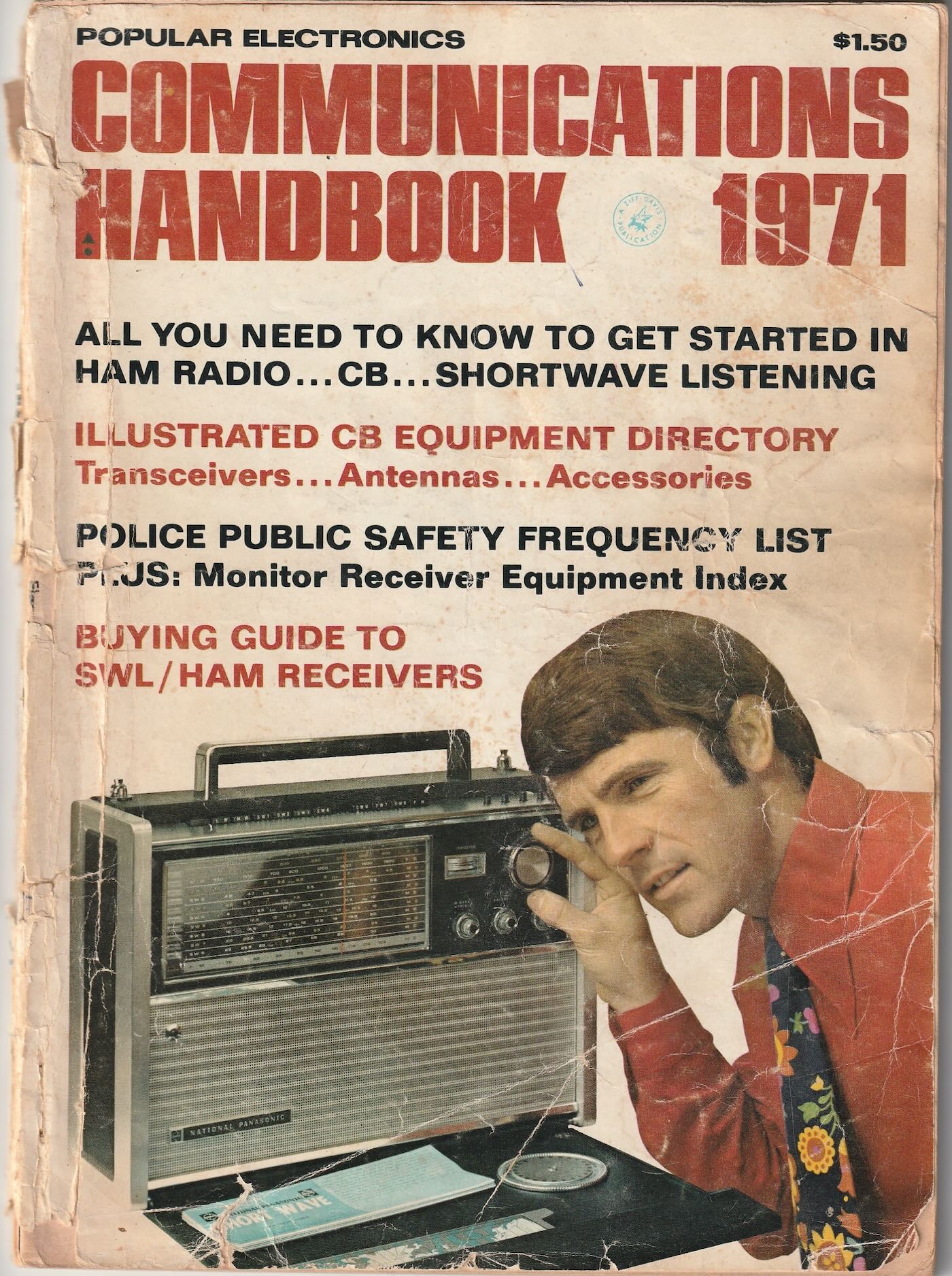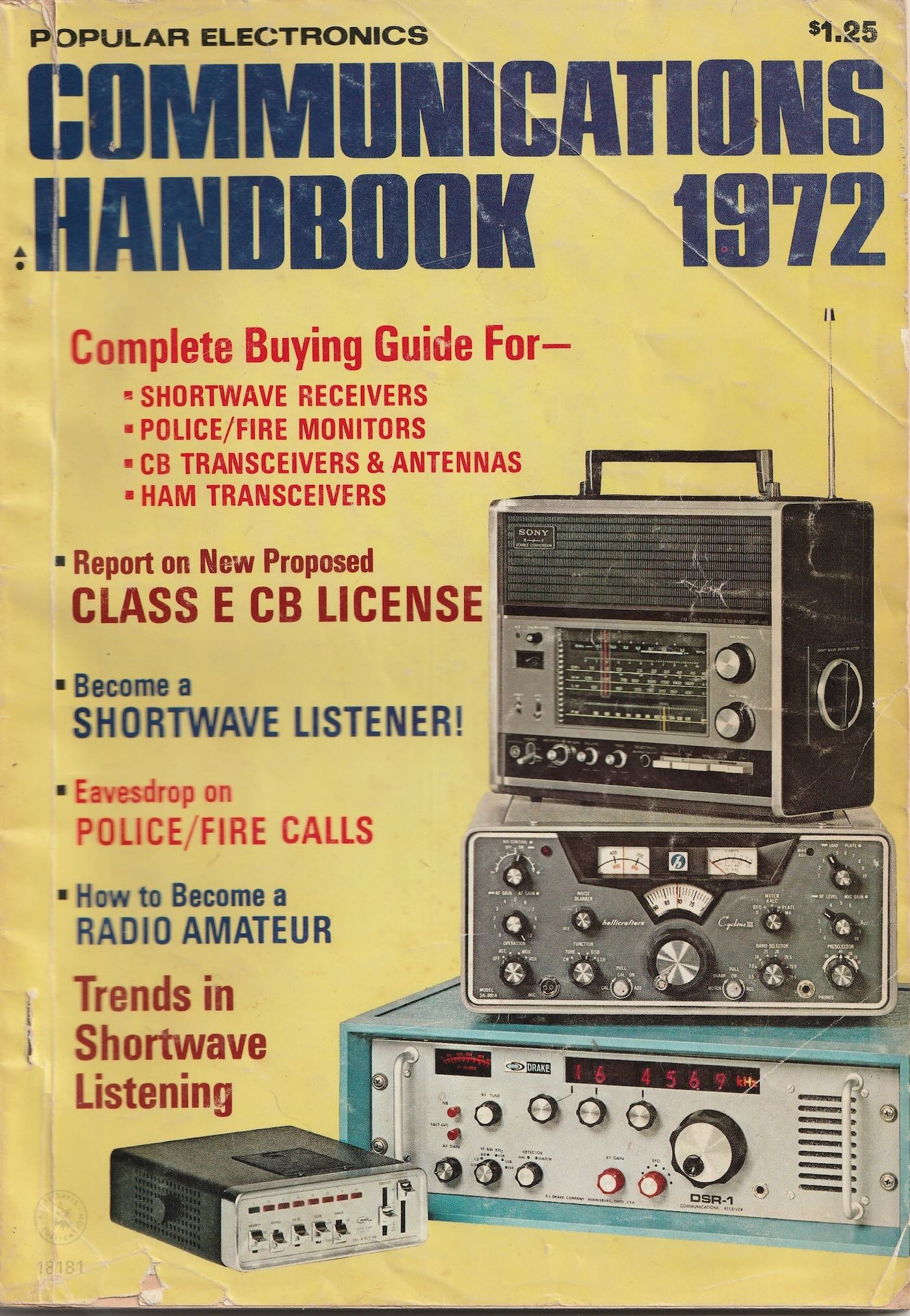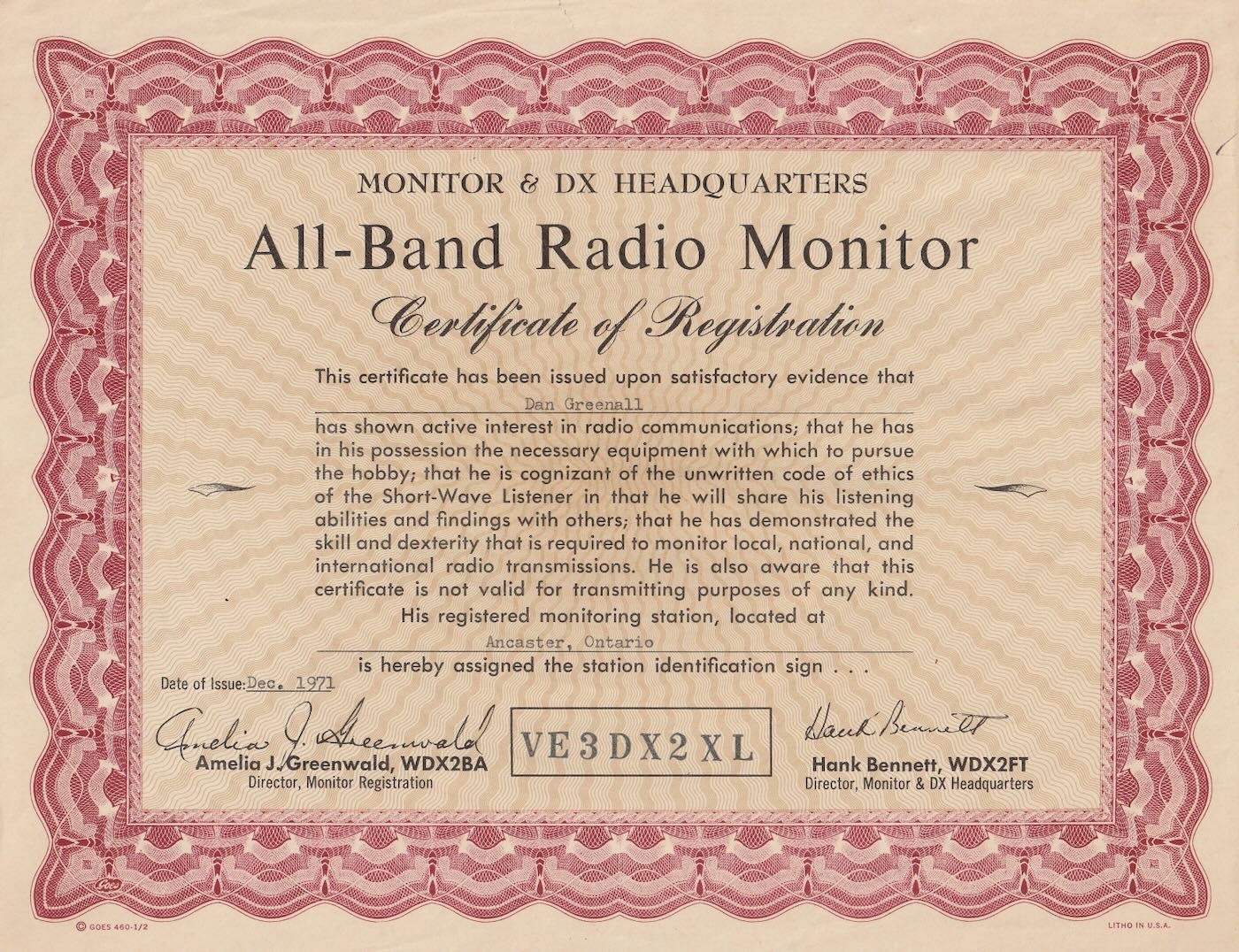Many thanks to SWLing Post contributor, Dan Greenall, who shares the following guest post:
Sources of SWL Information “Pre-Internet”
by Dan Greenall
When I first discovered the world of shortwave listening, many years before the internet, access to hobby related information was mostly available through over-the-air DX programs, monthly DX club bulletins, as well as a number of books and electronics magazines. I joined a few clubs including the Midwest DX Club, SPEEDX, and the Ontario DX Association, and eagerly awaited each issue of Electronics Illustrated and Popular Electronics (early 1970’s) on the news stand. Later, in the 1980’s, Popular Communications and Monitoring Times came along, though these were not always easy to find here in Canada.
Ironically, nearly all issues of these magazines can be read today, over 30, 40 and even 50 years later, thanks to David Gleason’s not-for-profit, free online library
https://www.worldradiohistory.com/index.htm
You can also find the semi-annual (and eventually annual) Communications World (1971-81) which contained the popular White’s Radio Log.
As well, five issues of the Communications Handbook can be found; 1963, 1966, 1967, 1974 and 1977. It only came out once a year but was still a favourite of mine, so much so, that I still have my copies from 1971 and 1972.
 I have scanned parts of these and put them on the Internet Archive. You can find them here:
I have scanned parts of these and put them on the Internet Archive. You can find them here:
Communications Handbook 1971: https://archive.org/details/page-09
Communications Handbook 1972: https://archive.org/details/page-20
Here are links that will lead to some of the other magazines:
- https://www.worldradiohistory.com/Popular_Communications.htm
- https://www.worldradiohistory.com/Monitoring-Times.htm
- https://www.worldradiohistory.com/Electronics%20_Illustrated_Master_Page.htm
- https://www.worldradiohistory.com/Popular-Electronics-Guide.htm
- https://www.worldradiohistory.com/BOOKSHELF-ARH/Technology/Hobbyist-Specials/Communications-Handbook-1974.pdf
- https://www.worldradiohistory.com/BOOKSHELF-ARH/Technology/Hobbyist-Specials/Popular-Electronics-Communications-Handbook-1977.pdf
- https://www.worldradiohistory.com/BOOKSHELF-ARH/Technology/Hobbyist-Specials/Popular-Electronics-Communications-Handbook-1967.pdf
- https://www.worldradiohistory.com/BOOKSHELF-ARH/Technology/Hobbyist-Specials/Communications-Handbook-1966.pdf
- https://www.worldradiohistory.com/Archive-Poptronics/60s/63/Pop-1963-Communications-Handbook.pdf
As a bonus, all of the issues of the monthly SPEEDX bulletin (1971-95) have been made available here
https://www.worldradiohistory.com/Speedx.htm
And finally, a good read is Shortwave Voices of the World by the late Dr. Richard E. Wood written in 1969. I still have my copy of it, but you can find it online here
https://archive.org/details/shortwave-voices-of-the-world-richard-wood-ed-1-pr-1-1969
WDX SWL registration program
My link to the 1971 Communications Handbook contains pages regarding the old WDX SWL registration program. I have found my old certificate from December 1971:
Wonder how many others still have theirs, or even the WPE ones from the 1960’s?



Thanks to David for digitizing and preserving my entire run of SPEEDX bulletins, as well as the mountain of other material on his site.
World Radio History has oodles of info for the radio enthusiast. If you’re a sentimentalist you’ll like this site.
I still only have Communications Handbook of 1977,
I must say it is not exciting as the WRTH of 1976 which unfortunately I throw away years ago .·´¯`(>?<)´¯`·.
*As I'm clearing ton of paper stuff here, I think this CH77 will be out also.
Thanks for this resource and trip down memory lane. I was WPE2REL based in Clinton Hill, Brooklyn, New York. I still have one of my QSL cards although my family threw out my collection of QSLs received. Got back into the hobby a few years ago and am amazed how things have changed, not the least of which is what Hams talks about in the air these days. Definitely would not have been allowed in the 70s!
73s
John in Maine
I’m really enjoying looking through the _Shortwave Voices of the World_ book and reading about some of my favorite stations of the era. The pictures are great, too. I still have a couple of old copies of _Communication World_ and I have the _Radio TV Experimenter_ archive queued up and ready to search through when I get a bit of time.
Pity that the few newcomers to SWL will never experience shortwave’s golden years of 1970 ‘s thru 1990 ‘s. Damn. that time was fun!
I’ve got my certificate, WPE9IRS. Also was a contributor to the Radio Log and many of the magazines noted, thanks for sharing all of these links.
Many Passport to World Band Radio copies can be found on the Internet Archive. Here are some:
https://mega.nz/folder/04M3SKLa#yYAxwVUoGL-rVPtUh10lSA
Archiving this stuff is more important than ever.
So many magazines have bit the dust, the latest being CQ mag.
And now website lasts forever, make your own archive, an share it with a friend just in case
your home burns down, or your “cloud” server becomes defunct.
Not just mags or books, but those invaluable youtoob vids too.
Knowledge should NEVER be wasted.
My favorite was Radio-TV Experimenter back in the ’60s.
https://www.worldradiohistory.com/Radio_TV_Experimenter.htm
It contained White’s Radio Log, a great source for AM, FM and TV listings.
For Shortwave Listening, I used Popular Electronics. Excellent and accurate.
Once we got into the ’70s, an annual copy of World Radio TV Handbook was a big help.
I had to downsize my library in 3 moves. Now just a memory of good reading.
73
Fantastic, and thanks for all the links!
I’m sure I still have my WPE certificate here, as well as a collection of Great Circle Shortwave Society newsletters. The GCSS was an organization for formerly certificated WPE Monitors and existed for a while back in the 1980s if I recall correctly. (I don’t consider myself a *former* WPE Monitor — I’m still WPE9FON as far as I’m concerned! 🙂 )
Speaking of Pop’Tronics, I remember anxiously awaiting a new Carl & Jerry Adventure each month!
I sometimes reflect on how different the process of identifying a DX station is now compared to the “old days.” Back then it was easiest if you could catch an ID (in English if possible), or recognize an interval signal, or track down a station based on a published magazine or club list or from information given in an on-air DXers program.
Today, language is not a barrier. Just hear a faint station, look it up by time and frequency, and make an instant ID! I’m amazed at the number of stations and countries I’ve been able to log without understanding a word of Arabic or Korean or French or Sinhala or Tigrinya or whatever.
Thank you for this priceless presentation! Brings back a ton of fond memories from that era of radio when I started out as a kid in New Jersey.
We’ve come a long, long way in the hobby of shortwave and DX listening.
I was able to obtain all the Communications Handbooks which I had enjoyed years before. Especially enjoyable was the one containing the photo of Richard E. Wood’s receivers, including his Squires Sanders SS-IBS which is now probably the rarest receiver on the used market.
It is unfortunate that Sweden Calling DXers (SCDX) bulletins are not fully archived. There are bits and pieces here and there.
Why don’t we get them all together (as many as we can find) and put them in one place on archive.org? I have a personal archive of some of them I could offer.